AUTUMN-WINTER 2024




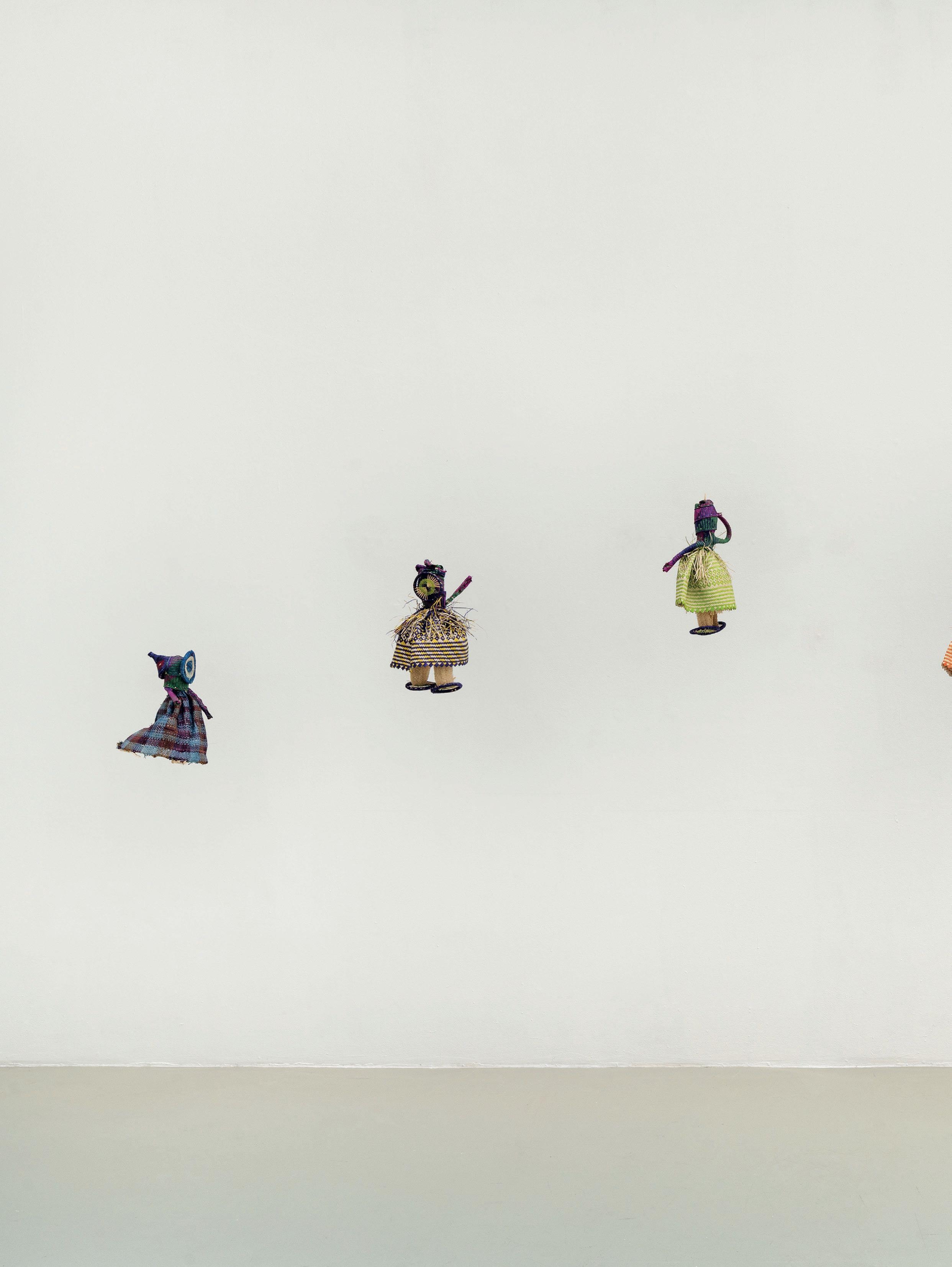
20 June - 27 July 2024
Galerie Kandlhofer is delighted to present IAmAllTheseWomen , a solo exhibition of works by Acaye Kerunen spanning sculpture, video, music and performance. This exhibition is testament to the evolving conversations of identity, materiality and the power of personal joy and expression. Bringing together a new body of work alongside video presentations initiated in 2021, this exhibition marks Acaye’s inaugural presentation with the gallery and in Austria.
I Am All These Women explores the multifaceted nature of identity, with a particular consideration to the transitions that women constantly embody. Throughout her multidisciplinary career as an artist, curator, actress, writer and activist, Acaye challenges the narratives that flatten people and their experiences. The exhibited artworks query binary and restrictive societal expectations through frozen dance motifs and contentions inherent in the artworks both abstract as well as in the dolls.

A key component of Acaye’s artwork is materiality. Raffia, banana fibre, dried grass, stripped banana rind and palm leaves are hand-sewn, braided, knotted and rewoven as large-scale dolls, wall-based installations and free-standing sculptures.
These works visually amalgamate personal, and lived experiences with material storytelling. All the natural materials in the artwork have evolved through artistic creativity into intricate assemblages that celebrate the durable yet diverse paths of life.
The videos and sculptures resonate the artist’s intuitive movements and present nuanced emotional and societal portraits. We can choose our own path through personal joy and expression.


Tell it to Me Again
- 20 June 2024

At the center of Nadia Ayari‘s new paintings are forms and motifs that are represented as recurring characters in various series by the artist.
After an intensive creative period, Ayari is using the exhibition in the context of Focus On as an opportunity to reflect on her older works and intensively examine the symbolism of her paintings. Metallic lines circle through the artworks. Their surface and form are reminiscent of barbed wire. Their symbolic hardness and demarcation are contrasted by the flowers that grow out of the wire instead of the spikes. They manage to blossom even in difficult situations and assert themselves against their harsh surroundings.
Through the intensive examination of motifs and their recurring circulation, they take on an increasingly abstract quality for Ayari, much like a word that is often repeated and almost loses its meaning, seems unnatural and is reduced to its sound instead of its meaning. Ayari repeats her motifs in a similar way.
Contemplation is also essential to her working process. It takes over two months to complete one of her paintings. Form and color gradually harmonise with each other and slowly merge into a finished work. The naturalistic depiction of flowers, almost like futuristic still lifes, are examined for their meaning.
Ayari speaks of a representation of survival. The flowers, which protrude from the metal, assert themselves against their unnatural surroundings, assert themselves against adverse circumstances and flourish as central protagonists of the works despite their circumstances. Climate change, political instability and war form the soil from which these flowers sprout.
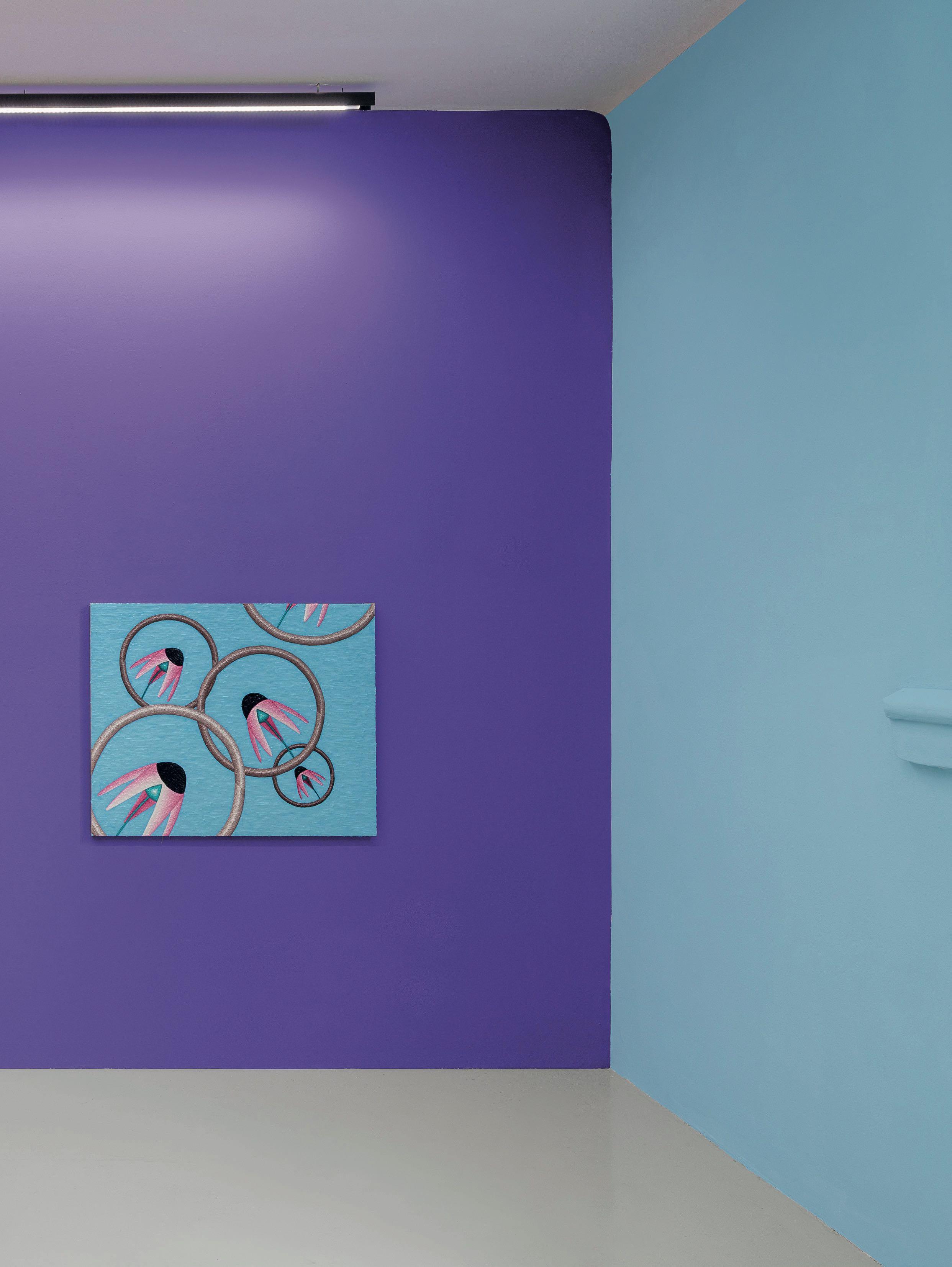
Her works can be found in collections of the Collection Pinault, Paris, France; the Dalloul Art Foundation, Beirut, Lebanon; The X Museum, Beijing, China, The Scantland Collection, Columbus, Ohio; Fundación Medianoche, Grenada, Spain; Museum of African Contemporary Art Al Maaden, Marrakesh, Morocco Barjeel Foundation, Sharjah, UAE; State Museum of Contemporary Art,; Thessaloniki, Greece; Saatchi Collection, London, UK.
Text by Lorenz Ecker





We congratulate Nana Mandl for winning the main prize of the STRABAG Artaward International 2024!
The exhibition featuring works by Nana Mandl and the four recognition award winners will be on display from June 28 to October 3rd, 2024, at the Gironcoli-Kristall in the STRABAG Haus, Vienna. The STRABAG Artaward International has been awarded since 1994, and is one of the most highly endowed private art prizes for painting and drawing in Austria.
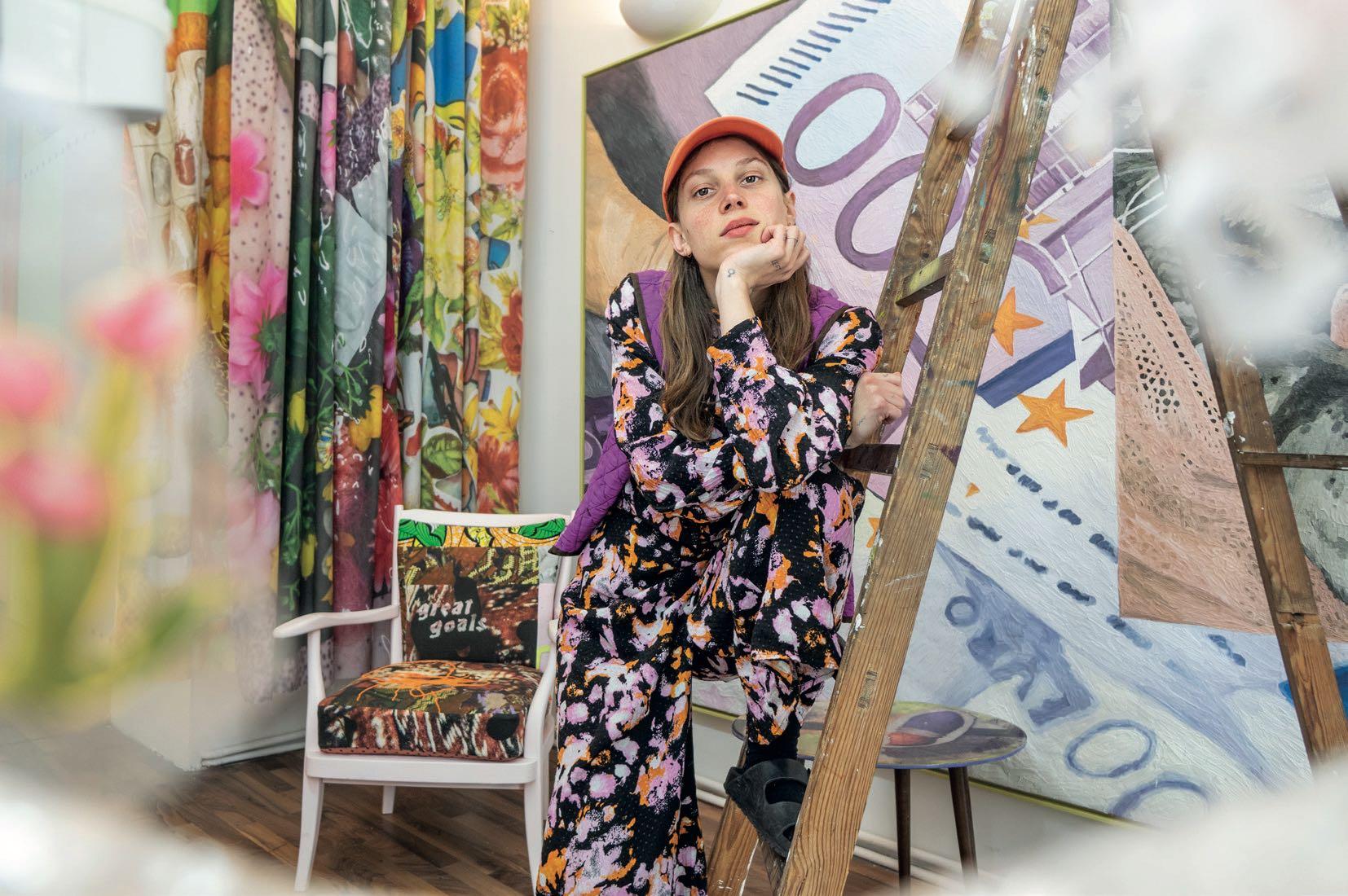

Until March 16th, 2025
Baltic Centre for Contemporary Art
United Kingdom
British artist Hannah Perry presents a major new commission that considers motherhood, labour and class. An immersive environment comprising film, sculpture, print and sound, the exhibition explores the process of becoming a mother, and its creative and destructive power.
Perry is known for her psychologically-charged installations that explore industry, class and gender. Her chosen materials, from steel to car lacquer and body wrap, are associated with manual occupations in manufacturing and industry. Perry’s work captures the effects of economic forces, and shifting cultural and social values, on our mental health.
The exhibition includes a choreographed mechanical sculpture which considers the physical act of labour. The work captures the beauty and struggle of the transition in the sculpture’s brutal, constrained power. The film explores the questions posed by the transition into motherhood. Jumping through personal and shared memory, the work exploits the material and textural qualities of the medium. Reflected images, spoken elements and soaring sound reflect the complex layering of the process.
Together, the works in Manual Labour evoke the dizzying and disorientating aspects of transitional periods in life, their potential to shatter our ideas of ‘self’ and the work of rebuilding identity.

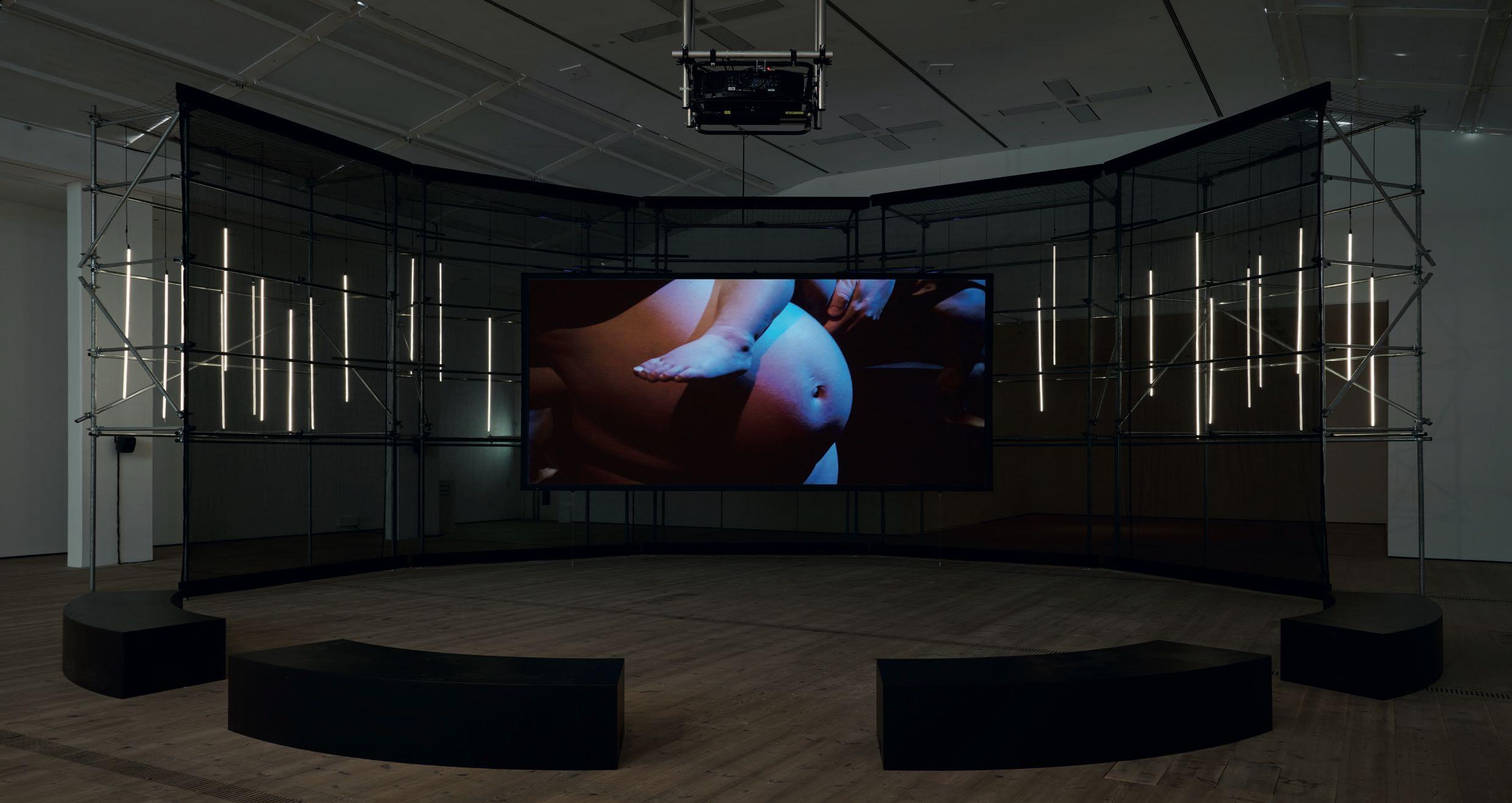



24 May – 7 July 2024
Harminder Judge is preoccupied with physical and spiritual transformation – a body becoming ash, material becoming immaterial, the physical becoming metaphysical. It revisits early elements of his practice, extends recent developments in his work, and opens up new areas of exploration. His work sets into motion dialogues between Western Modernism, Indian Neo Tantric painting, American Transcendental painting and familial funeral traditions drawn from rural Punjab.
The Ghost Dance of the title refers to a Native American ceremony. This type of circle dance was practised to raise the spirits of the dead in order to have them fight alongside the living to reclaim land from the colonial settlers.
Over recent years Judge has developed a distinctive and innovative practice grounded in an extended exploration of pigmented plaster as an artistic medium. The plaster sets – freezing a record of its creation in time – the surface is worked, polished and slowly worn away to reveal layers of colour, texture and movement beneath. This process embraces chance, and over time he has pushed it further with each new work. The results are sensual and seductive, with surfaces appearing sleek and shimmering. They have an illusory quality, seeming to hover in front of the wall, suggesting depth, evoking the idea of a portal or doorway and inviting the viewer to stay with them in contemplation.
Harminder Judge (b.1982 Rotherham, UK) lives and works in London. He graduated from the Royal Academy Schools, London in 2021. Selected recent solo exhibitions include: Sea and Stone and Rib and Bone, Jhaveri Contemporary, Mumbai, India, 2023; Frieze London with The Sunday Painter, London, UK 2022; Rising Skin from Rock and Chin, The Sunday Painter, London, UK 2022; Ankles Absorbing Ash, Humber Street Gallery, Hull, UK 2022; Mountains and Mercies, galeriepcp, Paris, France 2021. Selected recent group exhibitions include: Curated By: Glossary, Galerie Kandlhofer, Vienna, Austria 2023; The Reason for Painting, Mead Gallery, Warwick, UK 2023; Love Letter, Pace Gallery, New York City, USA 2023; And this skin of mine, Guts Gallery, London, UK 2022; New Beginnings, Blindspot Gallery, Hong Kong, 2022; A Grain of Sand, The Sunday Painter, London, UK 2021; Am I Human To You? Jugendstilsenteret & Kube Museum, Ålesund, Norway 2021; Tomorrow: London, White Cube, London, UK 2020; Our Ashes Make Great Fertilizer, Public Gallery, London, UK 2020; At Home In The Universe, Jhaveri Contemporary, Mumbai, India 2019 and A Plot For The Multiverse, Indigo + Madder, London, UK 2019.

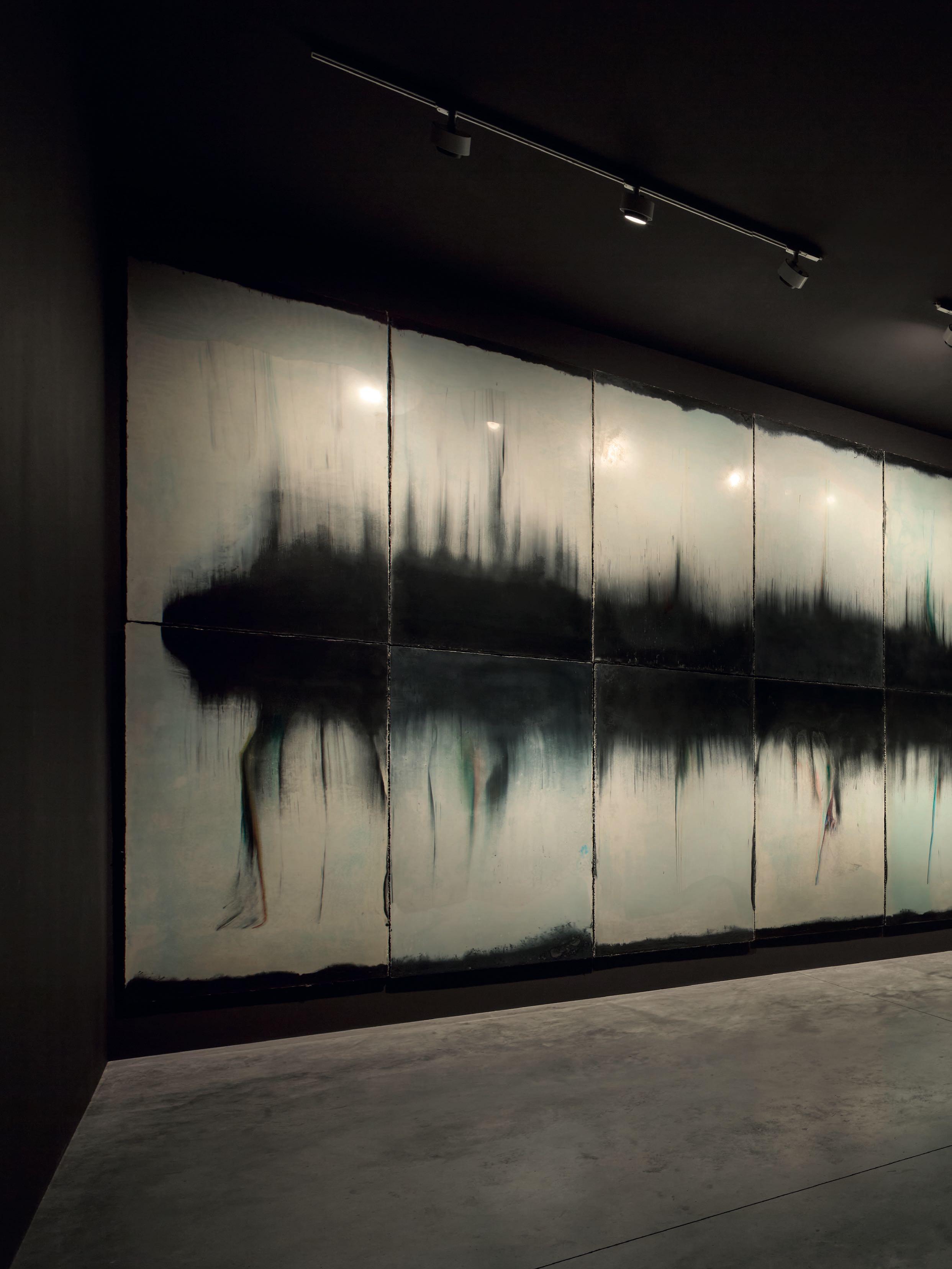

In the summer of 2021, Nitsch was invited by the Bayreuth Festival to provide scenic accompaniment for a concert version of Richard Wagner‘s ‘Die Walküre‘.
For all three acts, the artist conceived an extensive painting campaign, which was transformed into bright colours scene by scene with the help of ten painting assistants during the score.
Over 1000 litres of paint were spilled per performance. Many of the works created during this painting action will be presented during this year’s Hochsommer Festival at Kugelmühle in Styria.
Kugelmühle, Feldbach

HERMANN NITSCH
Schüttbild, 2021, Acrylic on Jute, 200 x 300 cm, 78 3/4 x 118 1/8 courtesy of the Nitsch Foundation

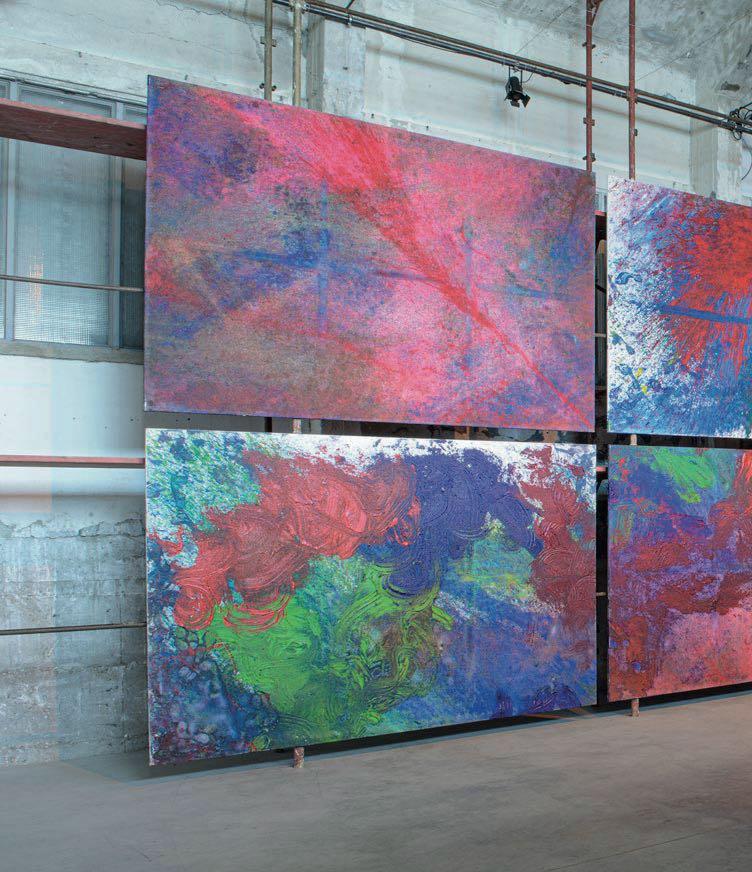
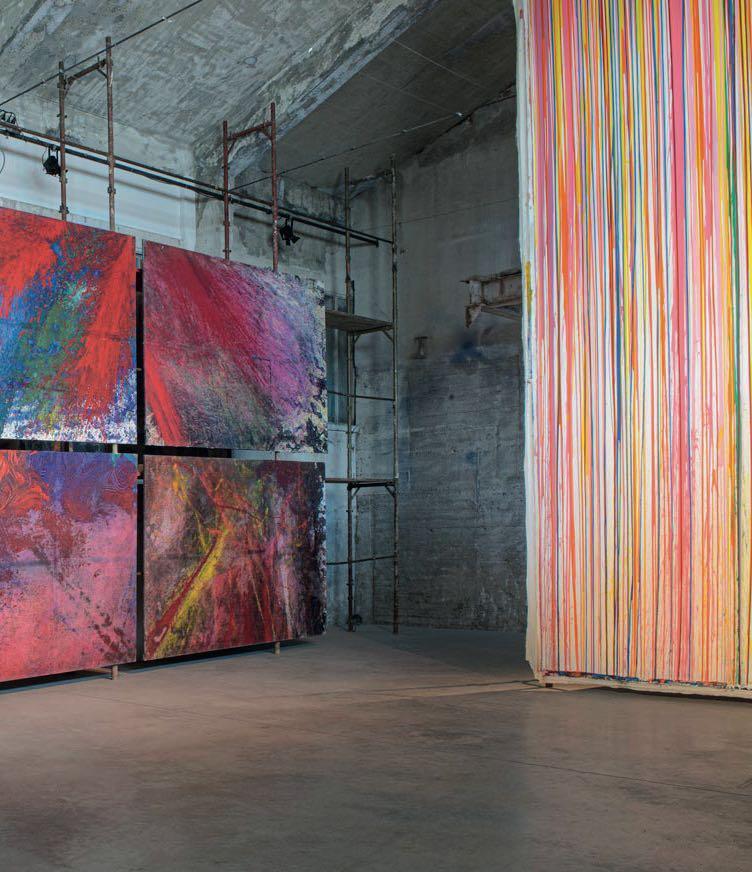

Estrid Lutz is a French artist born 1989 living and working in Puerto Escondido - Oaxaca Mexico.
Lutz’s earliest artistic works could be seen as violent explorations of the surfaces where human interaction with non-human occurs, and effect takes place.
A graduate of the Ecole des Beaux-Arts in Paris and the Art Center College of Design in Pasadena, Los Angeles, Estrid Lutz is fascinated by cutting-edge technologies applied to the aeronautics and aerospace industries, and has built her practice on a blend of tech materials and organic forms.
La Citadelle, in collaboration with Cirva - the International Research Centre for Glass and Visual Arts - is presenting for the first time the glass works created during Estrid Lutz‘s residency at Cirva.
On view until September 22nd, 2024
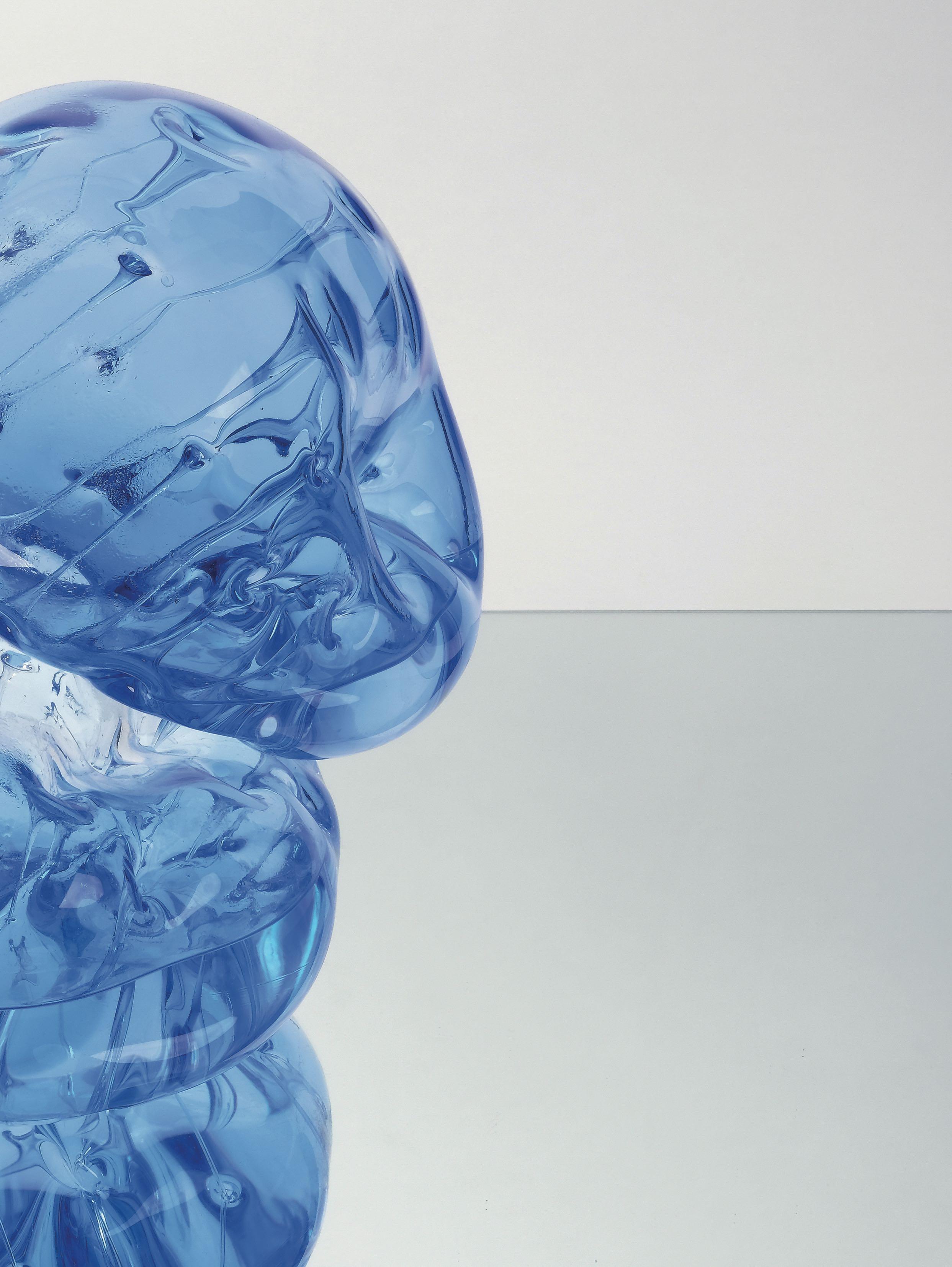
For three months, the artists Maximilian Prüfer (GER) and Julia Carrillo (MEX) joined the scientific community of ISTA (Institute of Science and Technology Austria) in order to gain comprehensive insights into it’s diverse laboratories and research fields.
For their final showcase, they exhibited a selection of the resulting exchanges in the form of artworks that tell stories ranging from nanofabricated “insects” to delicate prints of stars’ light spectra.
Known for his innovative and awe-inspiring works, Maximilian Prüfer (b. 1986) is characterised best through his deep interest in nature and it’s workings. Prüfer develops and uses delicate techniques to capture even the most subtle actions and details.
His catalogue spans from experimental printmaking and sculptures, all the way to the transfer and re-utilisation of materiality found in animal and plant realms. Prüfer’s works are frequently shown internationally, gaining appreciation for his thoughtful and sensitive approach towards environmental topics, his great dexterity and the occasional implied co-authorship with another species.
During his stay at the Institute of Science and Technology Austria, he acclimated some of his techniques to laboratory environments and experimented with new fabrication methods and natural fibers that could function as motors for miniature sculptures inspired by insects.
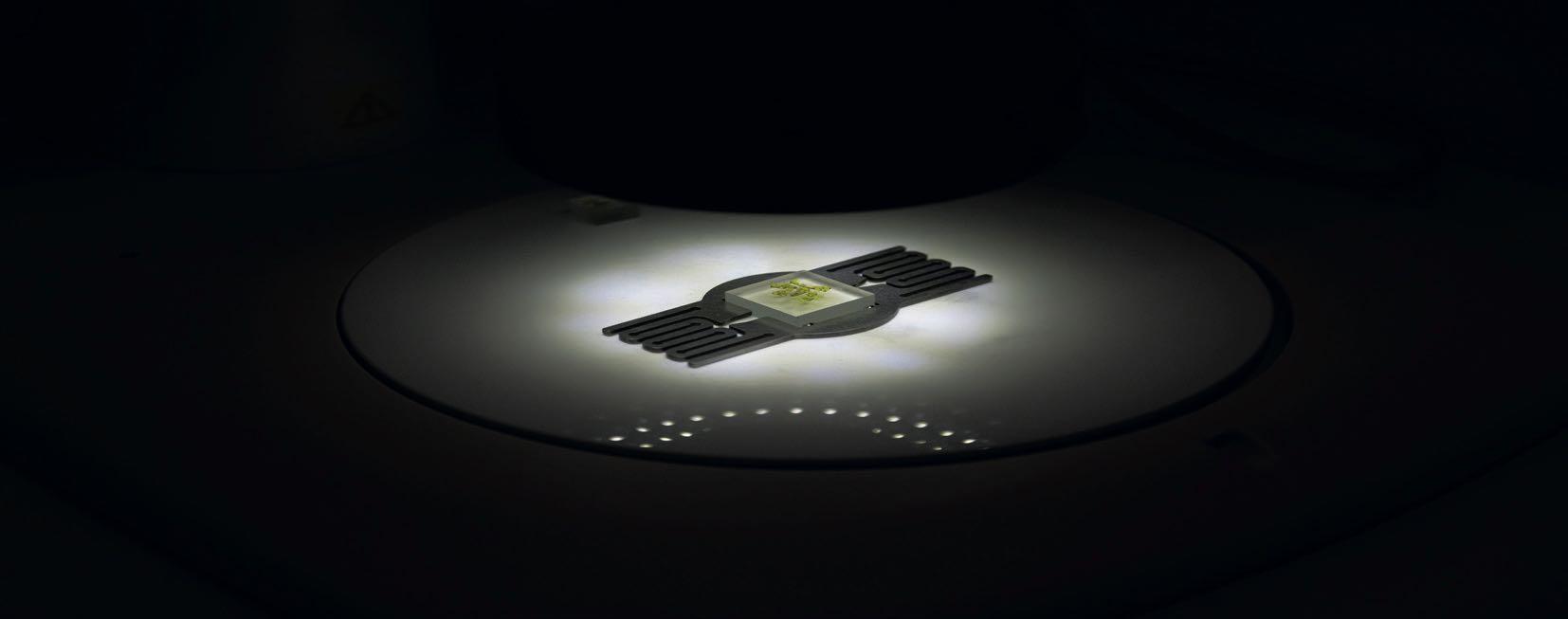

PRÜFER


at Galerie Kandlhofer
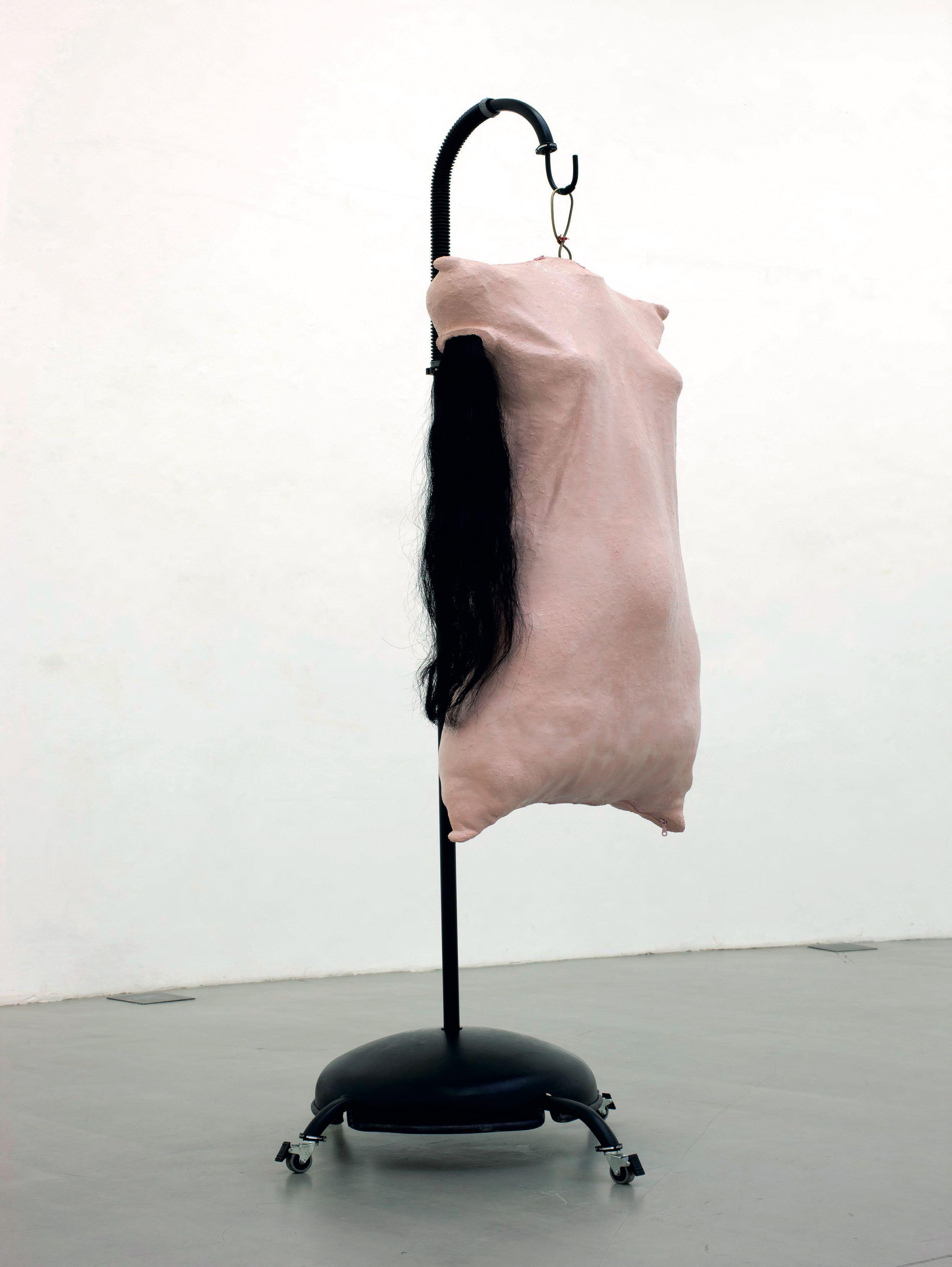
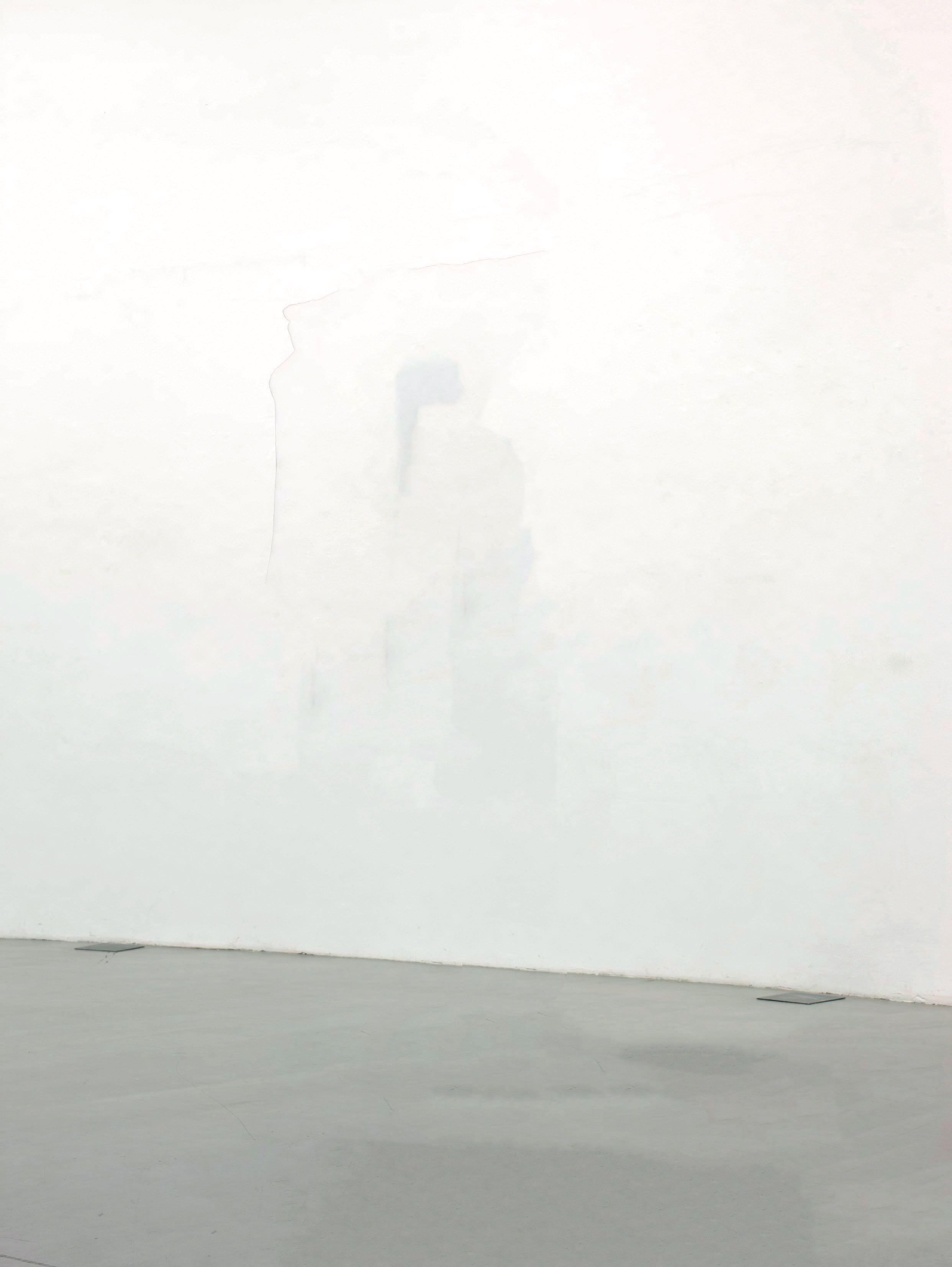
13 September – 19 October
For this years edition of Curated By we are excited to announce the gallery’s collaboration with curator Tevž Logar.

Tevž Logar’s curated exhibition In the Mood for Interruption will show works by Bora Baboçi, Nona Inescu, Damir Očko, Tanja Ostojić, Neša Paripović and Duba Sambolec.
Logar (1979) works as an independent curator, editor and author who collaborated with various institutions, galleries, and collections, such as: Muzeum Sztuki, Łódź; The Fondazione Sandretto Re Rebaudengo, Turin; Kunsthalle Praha; TBA21, Vienna; the Venice Biennial and many others. He lives in Rijeka, Croatia.
All participating galleries and curators are invited to work with Noit Banai‘s impulse essay on the overarching question of the year: What is the archive, how do our memories manifest, where do we ground our nostalgia and historicity? Banai describes a biased state of the world – with narratives in conflict, with tragedies in question – but refuses to become pessimistic: “The partiality of the archive is both a condition for violence and an impulse for hope.”
In the realm of the official narratives of art history the body, as a space that ‘archives’ social, political, cultural, and personal traces, often served as a powerful medium for revealing stories that have been historically marginalised or repressed.

On the other hand today, the body holds significant importance in contemporary society, serving as a central focus in numerous tangible cultural, social, and political discourses in relation to the questions of gender identity, technology, labour, health, environment and migration. It is through the lens of this relationship, and in the context of the conceptual framework of this year’s Curated by festival, Untold Narratives, that informs the approach of the exhibition IntheMoodforInterruptionat Galerie Kandlhofer, through the body itself. The exhibited works offer multiple perspectives that can help us to understand more deeply its profound importance in shaping and reflecting our everyday.
Excerpt of an essay by curator Tevž Logar.

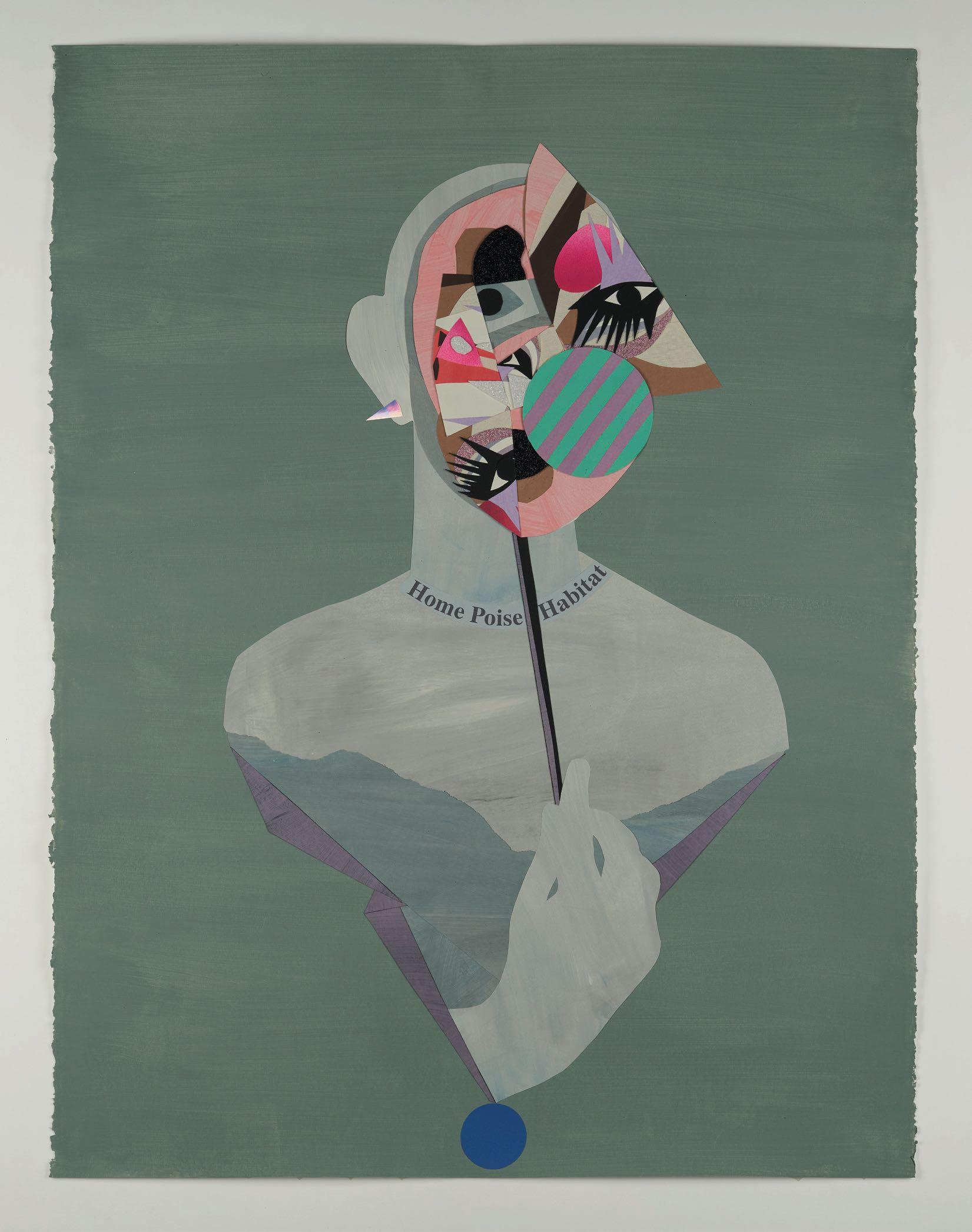


24 October - 22 November 2024
Nana Mandl (b. 1991 in Graz, Austria) studied at the Kunsthochschule Berlin Weissensee and received her diploma in Fine Arts at the University of Applied Arts, Vienna.
In her colourful material collages, pictures, prints and sculptures, Nana Mandl develops possible visual implementations of today‘s media challenges and excessive demands. Her haptic collages combine elements of painting, embroidery and drawing with forms of communicative-representative spheres of advertising, fashion, pop culture and social media.
People looking at their phones or posing in front of mirrors for selfies. A series by Nana Mandl whose photos of these scenes were also taken with phones: They are pictures of the typical images that accumulate in the photo archives of our smartphones. And they are images that say as much about self-perception and reality creation as they do about the time and environment of their creation. However, while the depicted protagonists look at the smooth, reflective display of their phones, we see them in Mandl‘s works portrayed in patchworks of textiles, embroidery, and overpainting. Instead of flawless smoothness, the surfaces show visible seams and gestural brushstrokes. Gently shimmering areas and rougher, almost light-absorbing weaving patterns intermingle or overlap. The colors are cheerful, powdery-pastel like the advertising campaigns of drugstore chains or bubble tea manufacturers.
The depicted people all seem to be young, well-adapted to this consumer world, and this is their self-designed appearance in it. Enabled by a technology that floods our daily lives with information, tempting us to immerse ourselves in other realities—and which, charged with personal memories, has simultaneously become part of our identity. We consume images and create our own images, which we let flow into the collective stream of images.
Text: Anna-Catharina Gebbers

28 November 2024 - 10 January 2025
Alicia Viebrock (b. 1986, Munich, Germany) studied at the Kunstakademie Düsseldorf under Professor Herbert Brandl and lives and works in Vienna, Austria.
Alicia Viebrock‘s paintings showcase simultaneous flickering and extinguishing, with movements and counter-movements in color streams that flow or get stuck. Her works juxtapose exuberance with reduction, luminous ink with smeared colors, and soft washes with angular precision. There is no single cause, only a hidden ‘big bang’ from which everything takes on specific forms retrospectively.
On watery backgrounds, pastose events unfold, reminiscent of crystalline ice or exploding flowers in space. Viebrock‘s process involves a ping pong between irrationality and planning, creating unique interactions between ink and acrylic that generate different tensions.
Physical impressions in her work reveal vague intuitions and centuries of painterly particles condensed in brushstrokes and color formations, bridging impressionism and abstract expressionism. Free from anecdotal interpretation, her paintings are given playful titles with wordplay and associations, often ranked by symbols.
(Excerpt of a text by Katharina Cichosch for Alicia Viebrock’s Exhibition ‘Manienna’ at Galerie Bärbel Grässlin)
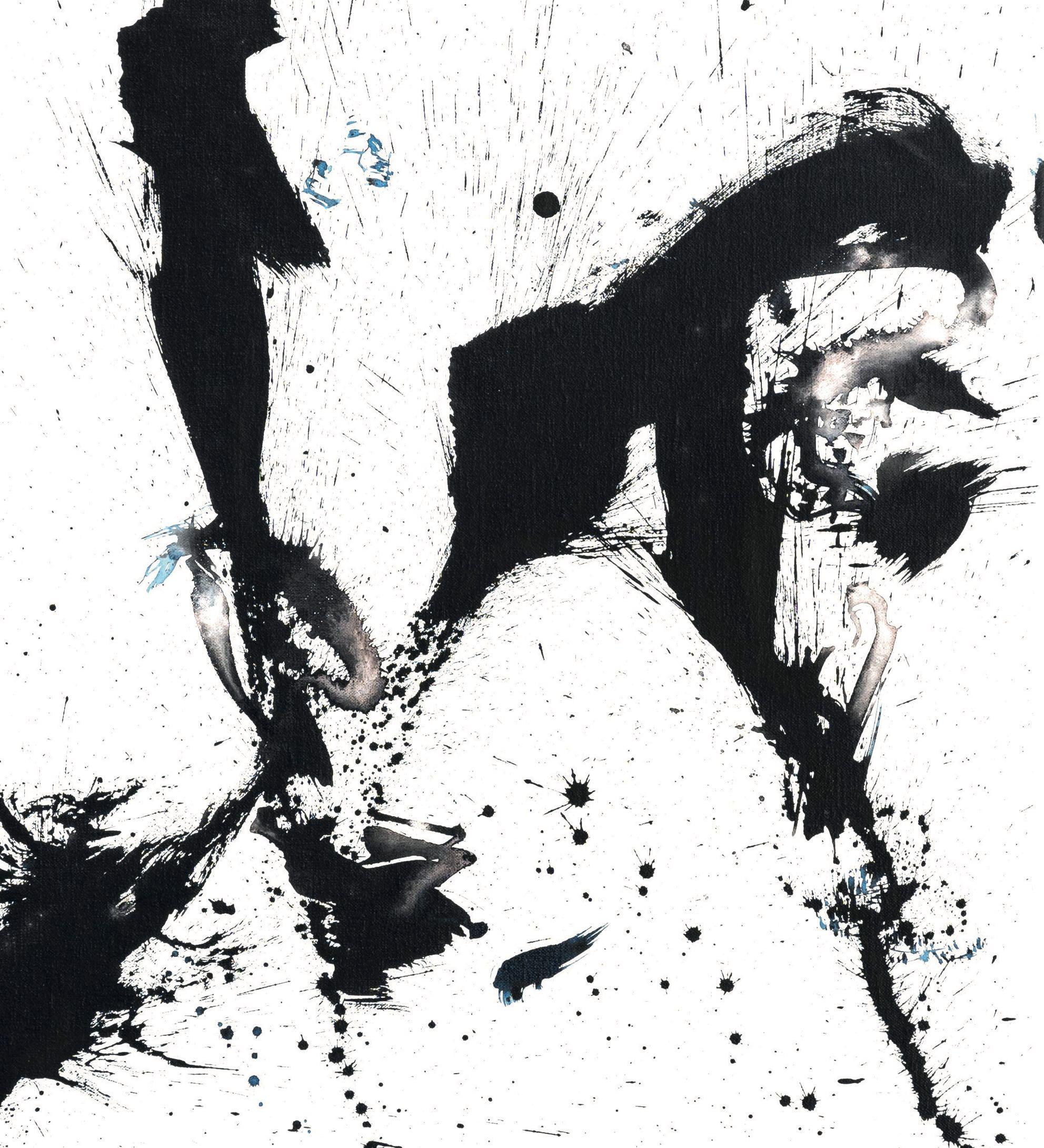
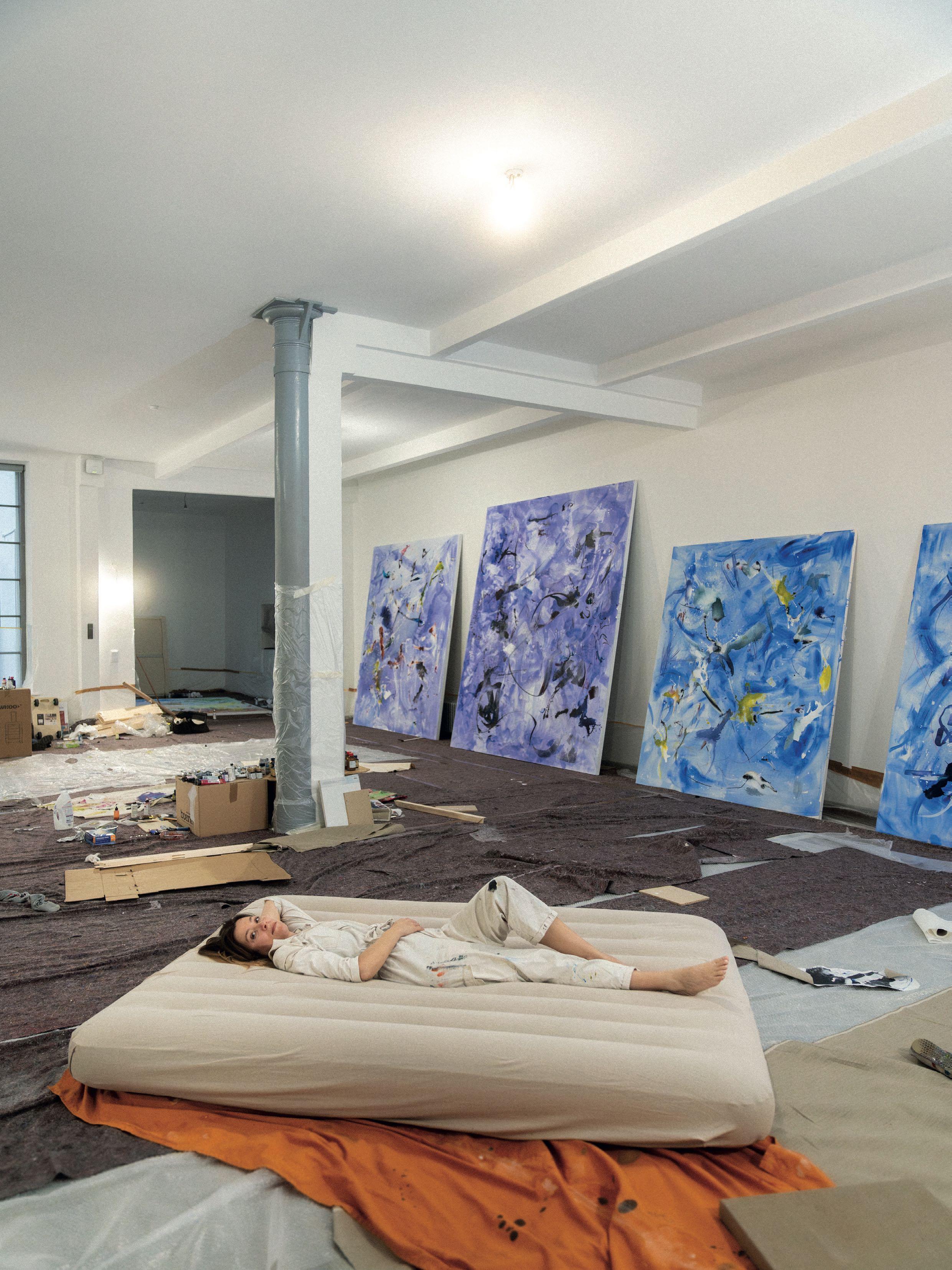

at Galerie Kandlhofer

“Focus On“ runs concurrently with the gallery’s main exhibition programme in the project room and focuses on bringing a diverse range of artistic aesthetics and voices to the gallery to form a broader cultural and aesthetic dialogue.


Alluding to M.C. Escher’s impossible structures and fantastical typographies, Lifshin plays with the boundless possibilities of space, warping dimensions in her other-worldly environments of labyrinthine mazes, corridors and archways. The characters and the features of their world, initially appear plausible, but defy logic and gravitational principles in multi-layered distortions of realism and surrealism. Bathed in a nocturnal blue glow, planes of the paintings shift from areas of bright moonlight, to pools of inky, sinister shadow, an oscillation of colour, light and composition, creating a deep sensation of ambiguity.
This aura of uncertainty extends to the cast of characters who possess an uncanny quality. Same march with purpose, others are suspended and appear disorientated. In some paintings, only fragments of the body are shown, legs kicking as they fall, or float into the depths of dark mazes. Bodies become twisted, elongated and anthropomorphised as they stretch into ropes or ladder legs. Hands grasping scissors emerge, appearing to prune and maintain leafy arches, while contributing to an ominous atmosphere as they glint in the moonlight, encroaching dangerously near the head of another figure.
Lifshin invokes the rich cultural and art-historical symbolism of the garden as the natural world, positioning it as a recurring space and compositional motif, highlighting its possibility as both a place of sanctuary and a site of uncontrolled danger. The moon is an ever-present and recurring feature, and while it evokes a feeling of dreamlike serenity, it catches an the threshold of eerie otherworldliness. In Lifshin’s paintings, the moon also operates as a metaphor for observation, as these figures, always watched, populate the endless turns of panoptic mazes and labyrinths. Here, the viewer is invited to consider for themselves, if these are spaces of safety and refuge, or as traps, ready to confine. Pictured in the act of tending to the spaces themselves, lifshin further complicates the subject, questioning if these figures cultivate the very cages that cage them?
Lifshin’s worlds are evocative explorations of the complex, ollen contradictory, nature of the spaces we create for ourselves. Spanning the physical to the metaphorical, these enigmatic expanses reveal how personal, subjective and subconscious moments can intuitively merge with the universal and themselves contain a multitude of shifts - from light to darkness, across the spectrum of emotional space, across the boundaries of the body and between the realm of the human to the non-human - where limits and edges blur.
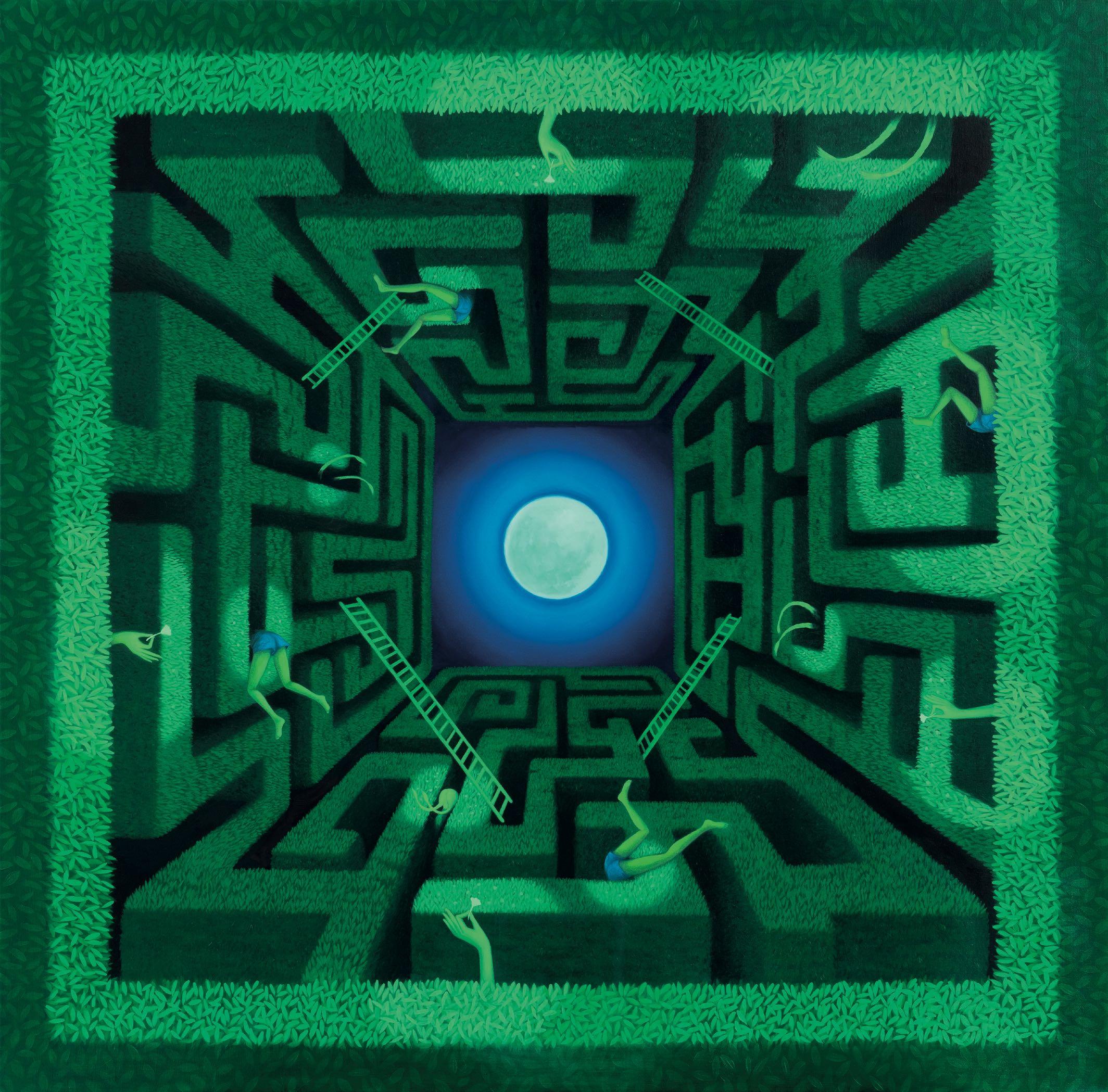

24 October - 22 November 2024

Sanja Nešković Peršin is a multidisciplinary artist, choreographer, and performer with a rich background in classical ballet and contemporary dance. She honed her craft at the Ballet and Music School in Ljubljana and furthered her training at the prestigious Rosella Hightower Ballet School in France. With a passion for continuous learning, she expanded her skills through international scholarships, master classes, and workshops in Vienna and New York.
Sanja‘s career flourished as a renowned ballet soloist at the Slovenian National Theatre Opera and Ballet in Ljubljana. From 2014 to 2019, she elevated her influence as the Choreographer and Artistic Director of the Ballet, where her innovative vision and leadership significantly shaped the company‘s artistic direction.
Throughout her journey, Sanja has collaborated with esteemed Slovenian and international directors and choreographers, making substantial contributions to numerous dance and theatre productions. Her groundbreaking approach garnered recognition in 2019 when she was awarded the prestigious Župančič Award by the City of Ljubljana for her exceptional contributions to the arts and culture scene.
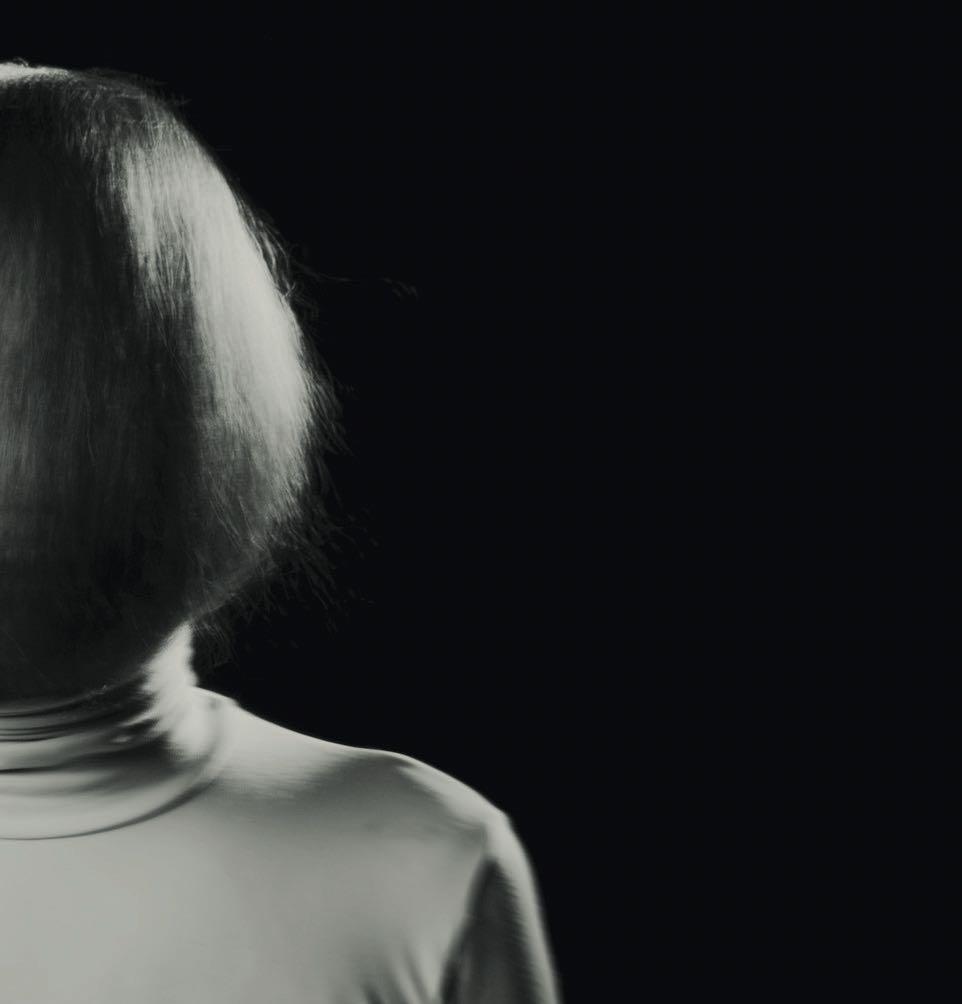
Sanja‘s creative work extends beyond theatrical stages into spaces dedicated to visual arts. Through these projects, she continuously pushes the boundaries of performative and visual arts, creating works that provoke deep reflection and emotional resonance. By examining diverse contexts, she navigates new avenues to express her ideas, lending fresh perspectives to the themes and experiences she passionately explores. Her dedication to exploring new media and contexts allows her to continually evolve as an artist, offering new balance through the reflection of intimate space and time.
Galerie Kandlhofer
Brucknerstrasse 4, 1040, Vienna, Austria
info@kandlhofer.com
+43 1 503 1167
Cover:
Nana Mandl, sacred situations (Anais+Kali), 124 x 164 cm, textiles and embroidery on canvas, framed, 2024, courtesy of the artist
Page 2:
Nana Mandl, shopping mall selfie, 2023, textiles and embroidery on canvas, framed, 124 x 166 cm, 47 1/4 x 63 in, courtesy of the artist
Page 4-5
Acaye Kerunen, I Am All These Women, 2024, Installation Views, photo Simon Veres
Page 6
Acaye Kerunen, Untitled, 2024, Mixed Media, (Raffia, Palm Leaves, Banana Fibre), 160 x 52 x 40 cm, 63 x 20 1/2 x 15 3/4 in photo Manuel Carreon Lopez
Page 7
Acaye Kerunen, Untitled, 2024, Mixed Media, (Raffia, Palm Leaves, Banana Fibre, Stripped Banana Leaves) 94 x 67 x 40 cm, 37 x 26 3/8 x 15 3/4 in
Page 8-9
Nadia Ayari, Tell it to Me Again, 2024, Installation View, photo Manuel Carreon Lopez
Page 10
Nadia Ayari, Detail View, Twirl II, 2024, Oil on Linen, 88.9 x 109.2 cm, 35 x 43 in, photo Greg Carideo
Page 12
Nana Mandl, sacred situations (Anais+Kali), 2024, 124 x 164 cm, textiles and embroidery on canvas, framed, photo Nana Mandl
Page 13
Nana Mandl, Artist Portrait, courtesy of the artist
Page 14-17
Hannah Perry, Manual Labour, 2024, Baltic Centre for contemporary Art, photo Reece Straw, 2024 Baltic
Page 19
Harminder Judge, Courtesy of the artist and The Sunday Painter, photo Benedict Johnson
Page 20
Harminder Judge, Courtesy of the artist and The Sunday Painter, photo Ollie Hammick
Page 22
Hermann Nitsch, Schüttbild, 2021, Acrylic on Jute, 200 x 300 cm, 78 3/4 x 118 1/8 courtesy of the Nitsch Foundation
Page 23
Hermann Nitsch, Schüttbild, 2021, Acrylic on Jute, 200 x 300 cm, 78 3/4 x 118 1/8 in courtesy of the Nitsch Foundation
Page 24 and 25
Hermann Nitsch, Installation View, Bayreuth Walküre, 2024, Kugelmühle Feldbach, photo: Kugelmühle Feldbach, Andreas Ster8
Page 26 and 27
Estrid Lutz, o.T., 2023, production / realisation Cirva, Marseille. © Estrid Lutz ; photo © Cirva / Bérangère Huguet
Page 28
Maximilian Prüfer, NFF_Print, courtesy of the artist
Page 29
Maximilian Prüfer, Forming Thoughts, 2020, Natureantitype on Paper, 82 x 111 cm, 32 1/4 x 43 3/4 in, courtesy of the artist
Page 32
Duba Sambolec, 1/2 Volume Hanging, 2010-2011, Silicone, horsehair, fabric, metal, paint, readymade, different materials, courtesy of the artist
Page 34
Nona Inescu, Afterlife (Strelitzia nocolai), 2023, Digital print on Hahnemeuhle Rag Satin paper, 60 x 40 cm, 23 5/8 x 15 3/4 in, photo courtesy of the Artist and Catinca Tabacaru Gallery
Page 35
Tanja Ostojić, Personal Space, 1996, 120 min performance, Biennale of Young Artists, Vršac, Yugoslavia, Photo by Saša Gajin, copyright Tanja Ostojić, Courtesy of the artist
Page 36
Bora Baboçi, First Apparition, intervention, 2023, photo Ina Lisi
Page 37
Damir Očko, Home Poise Habitat, 2021, gouache and acrylic on paper, fabric, metallic foil, glitter foam, spray paint
Photo by Damir Žižić, Courtesy of the artist
Page 38
Neša Paripović, From the Shooting of the film N.P., 1977, Photo by Goranka Matić, Courtesy of the artist and Trajković Collection
Page 41
Nana Mandl, daily selfcare moments, 2024, textiles, embroidry and foil, doublesided, 110 x 160 cm, 43 1/4 x 63 in, courtesy of the artist
Page 43
Alicia Viebrock, o.T., 2024 Acrylic & Ink on Canvas, 50 x 45 cm, 19 3_4 x 17 3_4 in, photo Alexander Eckhardt
Page 44
Alicia Viebrock, Studio View, photo Alexander Eckhardt
Page 45
Alicia Viebrock, o.T., 2024, Acrylic & Ink on Linen, 190 x 150 cm, 74 3/4 x 59 in, photo Alexander Eckhardt
Page 48
Katia Lifshin, Hallway, 2024, 112 x 130 cm, 44 1/8 x 51 1/8 in (KL003), photo Elad Sarig
Page 50
Katia Lifshin, Lost and Found, 2024, 110 x 110 cm, 43 1/4 x 43 1/4 in (KL004), photo Elad Sarig
Page 51
Katia Lifshin, Pathways, 2024, 120 x 120 cm, 47 1/4 x 47 1/4 in (KL005), photo Elad Sarig
Page 52
Sanja Nešković Peršin, The Moment Before, Concept and Performer Curator: Yasmín Martín Vodopivec, Set-up and video: Atej Tutta
Music: Sašo Kalan, Production: NOT Space for Art
photo Atej Tutta
